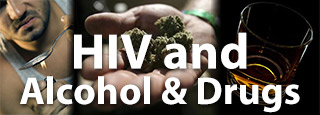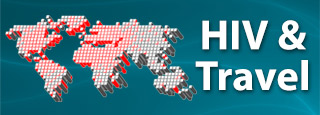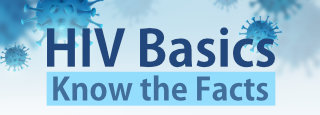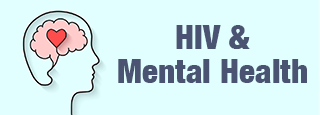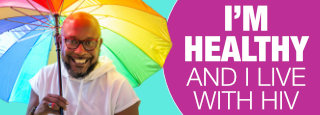You can pass on your best qualities
But you can't pass on HIV
You can pass on your best qualities
But you can't pass on HIV
HIV & Having Children
Thanks to highly effective antiretroviral (ARV) treatment, many people living with HIV are living healthy and productive lives. This has allowed many of us to pursue long-term goals and ambitions, such as starting and raising a family.
This page takes you through the things to consider when having a baby, from conception to infant feeding.
- People living with HIV can give birth without passing on HIV to their baby.
- Your options for conception will depend on your health and your partner’s HIV status.
- Your doctor will recommend you start anti-HIV treatment during your pregnancy, if you are not already taking it.
- Your viral load may affect some of your conception and birth delivery options.
Having a baby when you are living with HIV
People living with HIV can give birth to HIV-negative babies. Most of the advice for people with HIV is the same as it would be for anyone else thinking about having a baby. Some extra steps are necessary though to reduce the likelihood of HIV being passed on.
When a person is taking HIV treatment, and they have an undetectable viral load, the risk of HIV being passed on to their baby is just 0.1% (or one in a thousand).
When thinking about conceiving, the advice will depend on each individual’s circumstances. Advice will be based on your general health; whether you are taking anti-HIV drugs; your viral load; and whether your partner has HIV.
If you are not already taking anti-HIV medication, you will be advised to do so. HIV can be passed on during pregnancy and birth; having an undetectable viral load will prevent this.
If you are planning on getting pregnant and are already taking anti-HIV medication, talking to your HIV specialist will give you a clearer understanding about your current medication and if it is still the best option during pregnancy.
When a person is taking HIV treatment, and they have an undetectable viral load, the risk of HIV being passed on to their baby is just 0.1% (or one in a thousand).
When thinking about conceiving, the advice will depend on each individual’s circumstances. Advice will be based on your general health; whether you are taking anti-HIV drugs; your viral load; and whether your partner has HIV.
If you are not already taking anti-HIV medication, you will be advised to do so. HIV can be passed on during pregnancy and birth; having an undetectable viral load will prevent this.
If you are planning on getting pregnant and are already taking anti-HIV medication, talking to your HIV specialist will give you a clearer understanding about your current medication and if it is still the best option during pregnancy.
How can we conceive if one of us is HIV negative and one is living with HIV?
When a person living with HIV has an undetectable viral load, there is no risk of HIV transmission during sex.
If you or your partner have a detectable viral load, it is important to discuss conception options that reduce or remove risk of transmission during sex to you/your partner and baby. Before deciding not to use condoms, get advice from your HIV specialist so that they can confirm what would work best for you. This may include the HIV-negative partner taking PrEP. PrEP reduces HIV transmission and is safe to take during pregnancy and breastfeeding.
Everyone planning a pregnancy – whether or not they have HIV – is advised to take a daily folic acid supplement whilst trying to conceive and for the first 12 weeks of pregnancy. Folic acid (vitamin B9) helps cells in the body to develop. It is difficult to get enough through diet alone.
If you or your partner have a detectable viral load, it is important to discuss conception options that reduce or remove risk of transmission during sex to you/your partner and baby. Before deciding not to use condoms, get advice from your HIV specialist so that they can confirm what would work best for you. This may include the HIV-negative partner taking PrEP. PrEP reduces HIV transmission and is safe to take during pregnancy and breastfeeding.
Everyone planning a pregnancy – whether or not they have HIV – is advised to take a daily folic acid supplement whilst trying to conceive and for the first 12 weeks of pregnancy. Folic acid (vitamin B9) helps cells in the body to develop. It is difficult to get enough through diet alone.
If you are a man living with HIV who wants to have a baby
If you are a man living with HIV who wants to have a baby
If you want to be the biological parent of a child (that is, the baby is made with your sperm), you have a few options. You might choose to have a baby with a romantic partner or someone else who you plan to raise the child with (a parenting partner). Surrogacy is also a possibility.
You may also wish to donate your sperm to either someone you know or to someone who also wishes to have a baby.
Check out the spermpositive.com for more information on donating your sperm as well as stories from people living with HIV in New Zealand who have gone through the same process.
Check out the spermpositive.com for more information on donating your sperm as well as stories from people living with HIV in New Zealand who have gone through the same process.
Medication for your baby
Your baby will need to take anti-HIV drugs for a period of time after birth. This will be in liquid form. This does not mean that your baby has HIV.
The length of time your baby will need to take medication will depend on your viral load. If you are undetectable throughout pregnancy, your baby will be giving medication for two weeks. If you are detectable, this may be extended to four weeks.
In the early years of your baby’s life, HIV tests will be done several times: just after birth; at six weeks; at 12 weeks; and at 18 months (final HIV antibody test).
If these tests are negative and you have never breastfed, you will know for sure that your baby does not have HIV.
The length of time your baby will need to take medication will depend on your viral load. If you are undetectable throughout pregnancy, your baby will be giving medication for two weeks. If you are detectable, this may be extended to four weeks.
In the early years of your baby’s life, HIV tests will be done several times: just after birth; at six weeks; at 12 weeks; and at 18 months (final HIV antibody test).
If these tests are negative and you have never breastfed, you will know for sure that your baby does not have HIV.
Feeding your baby
It is advised not to breastfeed your baby. The best way to ensure that HIV is not transmitted is to formula feed, as there is no risk of HIV being passed on.
Although HIV is in an important factor to consider, it is not the only one. You may consider breastfeeding for other reasons. If you do consider breastfeeding, it is important that you have an undetectable viral load and stay in regular contact with your HIC specialist. Before breastfeeding, it is important to discuss this with them. It is important that you stop breastfeeding if any of the following occur:
Although HIV is in an important factor to consider, it is not the only one. You may consider breastfeeding for other reasons. If you do consider breastfeeding, it is important that you have an undetectable viral load and stay in regular contact with your HIC specialist. Before breastfeeding, it is important to discuss this with them. It is important that you stop breastfeeding if any of the following occur:
- your HIV becomes detectable
- you or your baby have tummy problems
- your breasts and/or nipples show signs of infection (cracked, sore or bleeding nipples).
Join Body Positive
Membership is free and available to anyone living with HIV in New Zealand.
© 2026 Body Positive Inc.
Join Body Positive
Membership is free and available to anyone living with HIV in New Zealand.
© 2026 Body Positive Inc.

